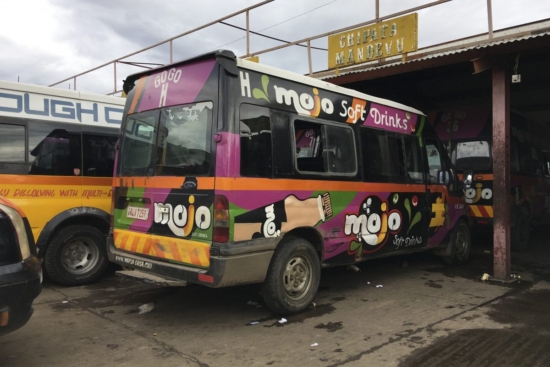Transaid picked for project to improve public transport provision in Lusaka

Transaid has been selected by the sustainable transport planning and research consultancy, ITP, to support the development of a road map for providing improved public transport services in Lusaka, in a major new project funded by the World Bank.
The Zambian capital is one of the fastest developing cities in southern Africa, with its metro area population growing by nearly five per cent annually for the last 20 years. Yet it remains almost entirely reliant on minibuses for intracity public transport, supported by a smaller number of buses and taxis.
ITP and Transaid, together with local partners, will spend up to nine months studying all aspects of the current transport provision, as the first step in looking at options for improvement. They will also examine the integrated package of investments which will be necessary to support efficient bus operations in the capital, with a future road map to include first and last-mile connectivity, as well as non-motorised transport and walking.
Caroline Barber, CEO of Transaid, says: “It is fantastic to be working with ITP on such an important project; we have nearly 15 years’ experience operating in Lusaka and are excited to be able to contribute to improving the transport provision for both users and operators.
“Together with ITP, we’re focused on wanting to take this from initial study to implementation, following an informed and practical approach which could be transformational for the people of Lusaka. Our focus is on identifying the right opportunities to strengthen transport provision, so that it meets the needs of the community and is safer for everyone.”
Transaid has used the strength of its local relationships in Zambia to assemble a strong team on the ground. This has seen Lloyd Mbasela, Executive Director of the Industrial Training Centre (ITC) in Zambia, which Transaid has partnered with to deliver professional driver training in-country since 2008, appointed lead consultant for stakeholder engagement. Development Data, another local partner Transaid has worked with on its bicycle ambulance projects, will conduct research with people who current use the public transport services in the city, to ensure ITP and Transaid develop a full understanding of all local issues.
Colin Brader, International Director of ITP, says: “We want to develop the deepest possible understanding of how transport is organised, controlled and delivered in Lusaka, to ensure we can provide evidence-based recommendations for the integrated investment required to drive real improvement on the ground.
“We specialise in improving the way the world moves and have worked on projects across Africa, but never in Zambia before. This is where Transaid’s local expertise will be hugely valuable, helping us to assemble a fantastic team to support us throughout this first phase.
“By working closely together, we want to unlock huge positive change for the city. We see this very much as a collaborative relationship between ITP, Transaid, Government institutions, key stakeholders and the World Bank.”

 Daimler
Daimler

Comments